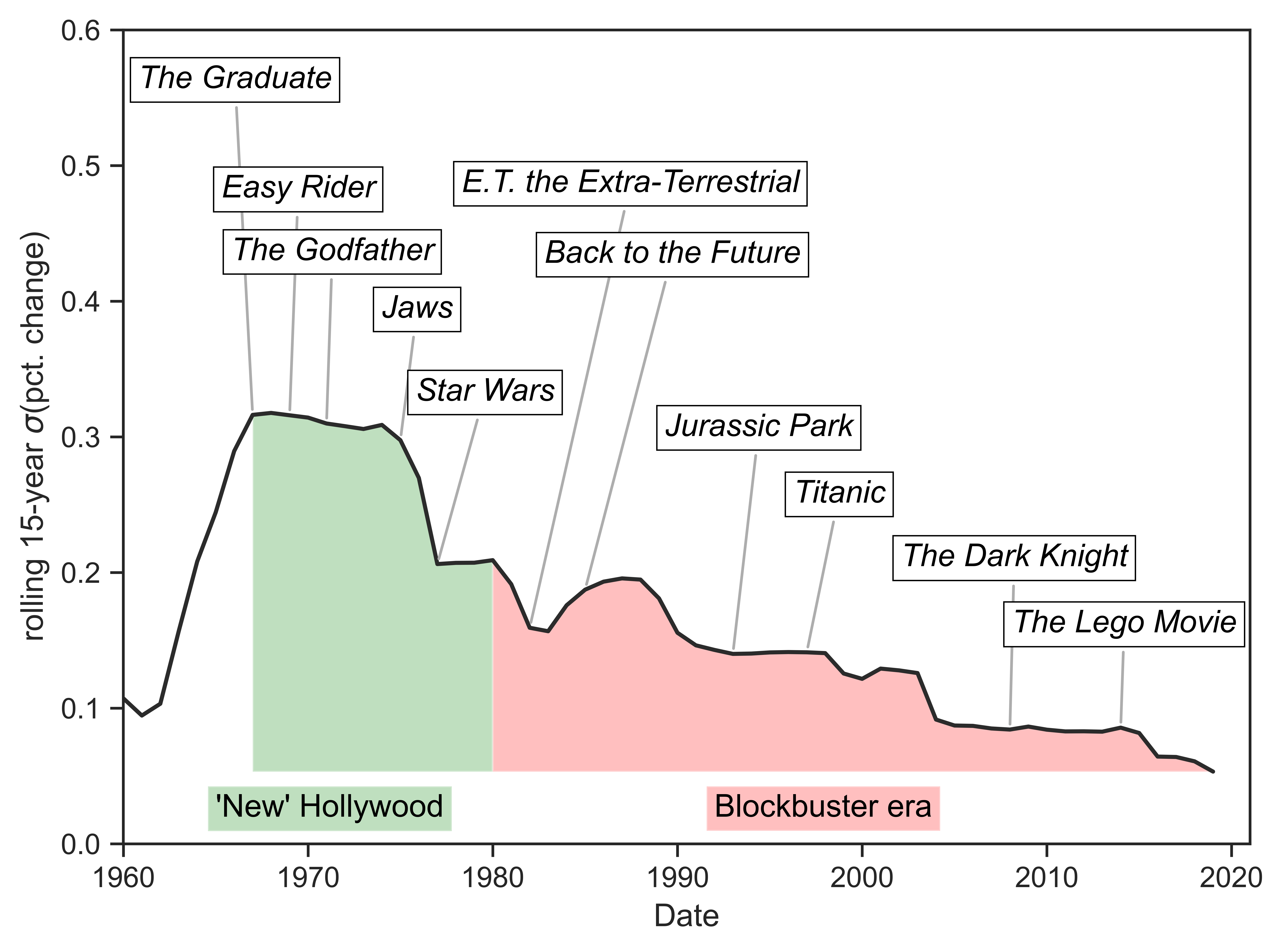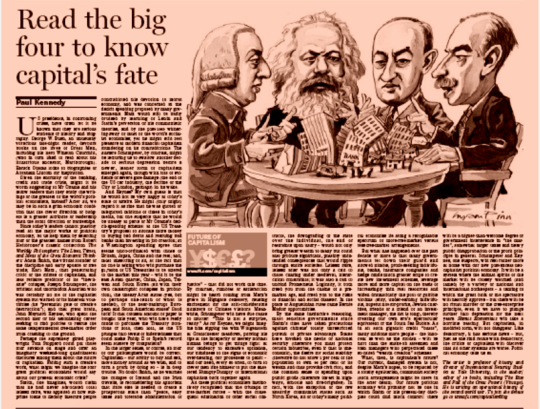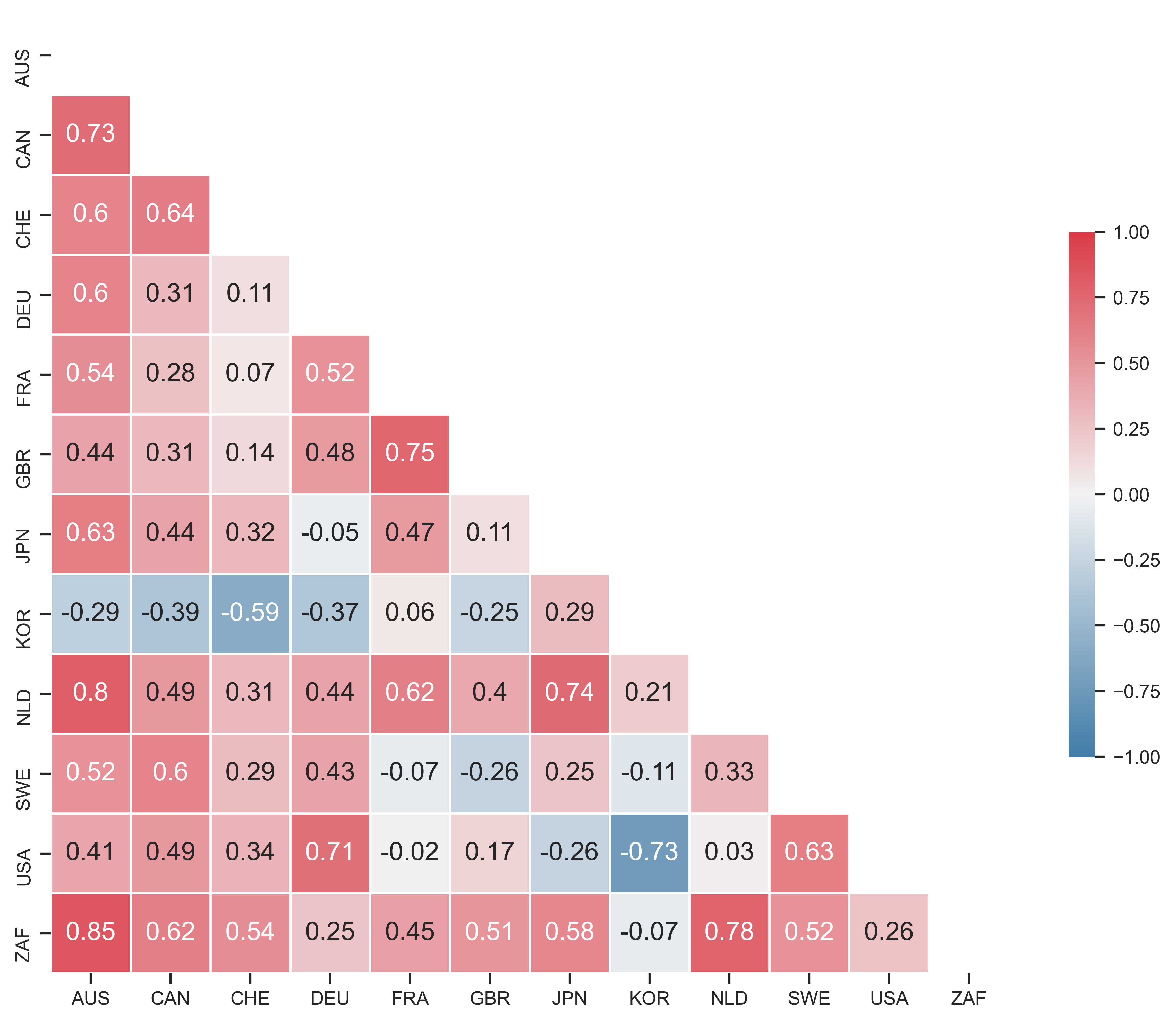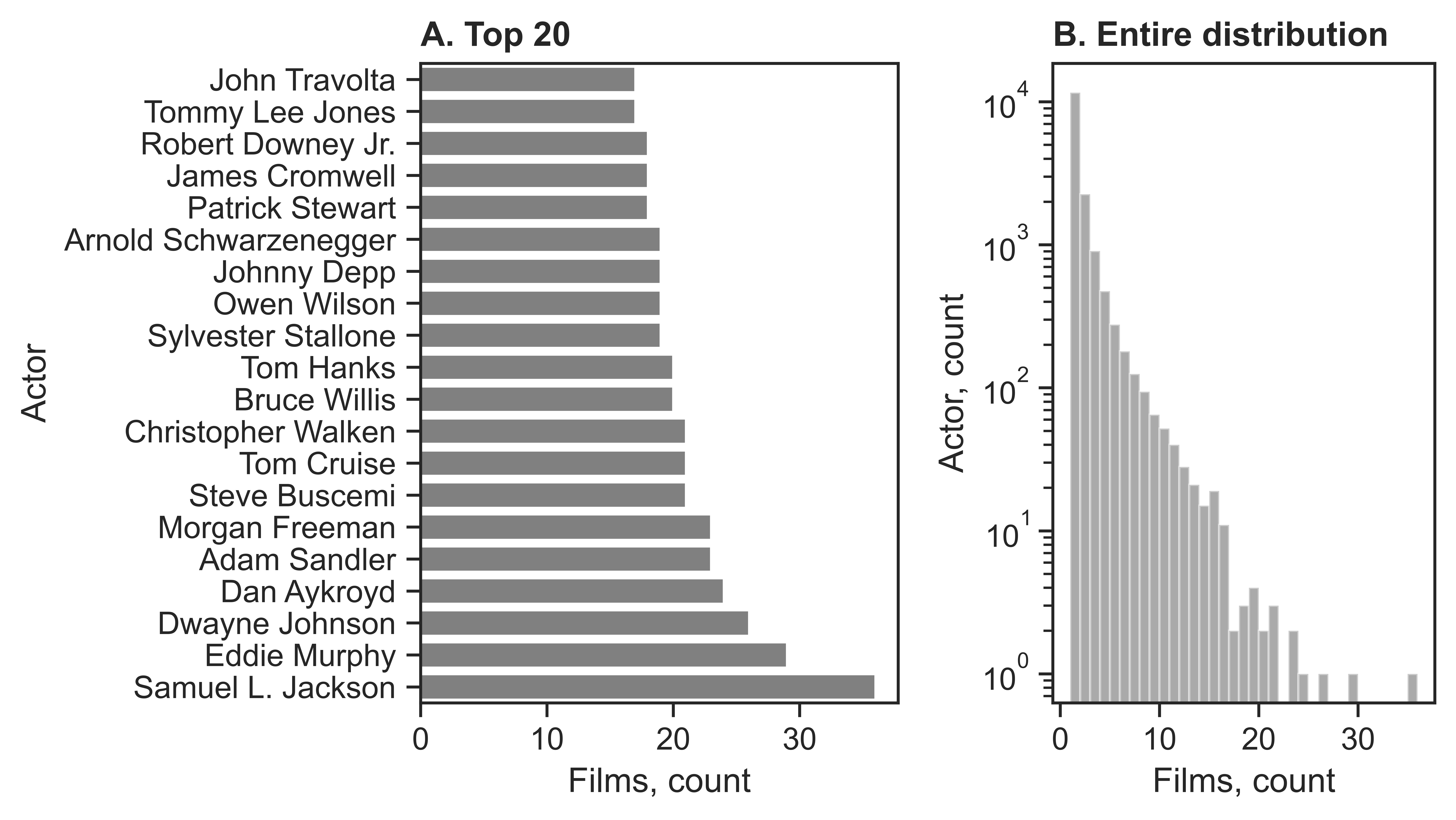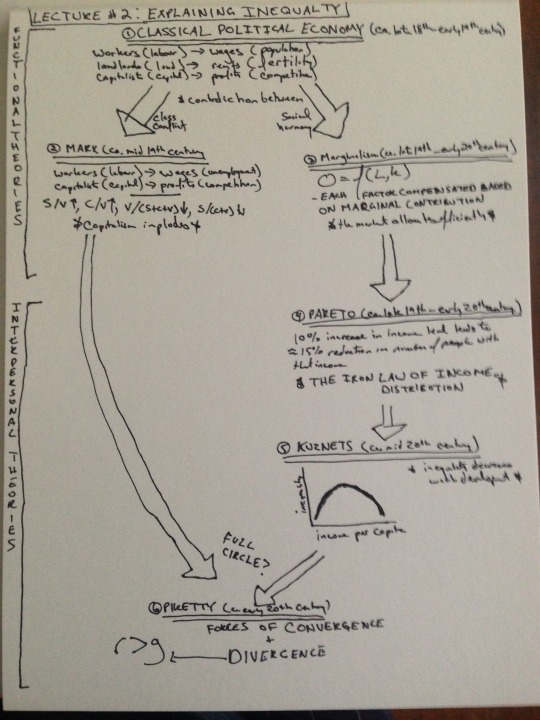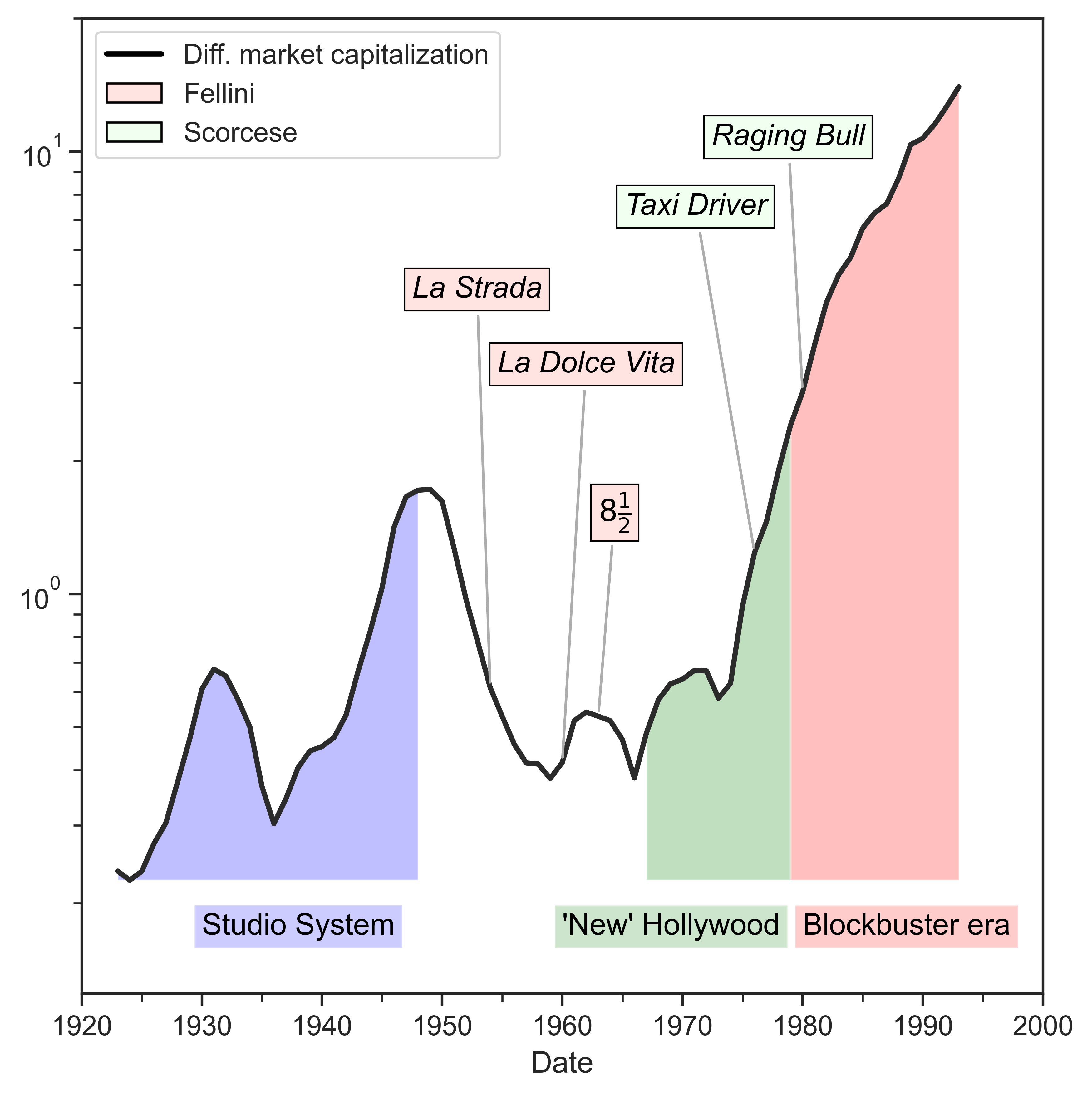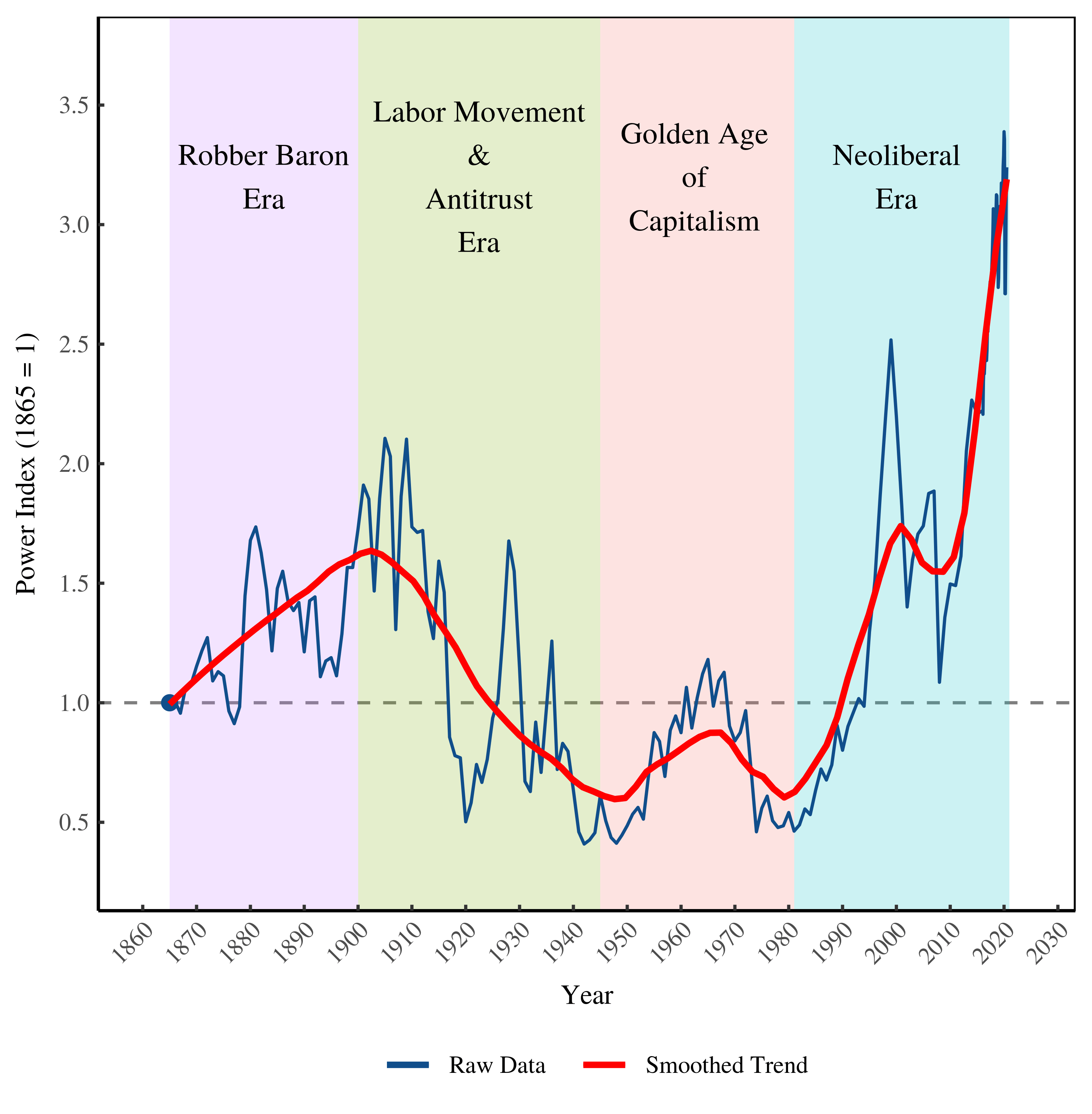Originally published at notes on cinema James McMahon Part 1 introduced Scorcese’s argument in his Harper’s essay, which was about much more than Fellini. The first part also explained how we can connect Scorcese’s essay to the drive in the Hollywood film business for major film distributors to differentially accumulate, i.e., beat a benchmark that […]
Continue ReadingWhy should we teach the history of political-economic thought?
Originally published at sbhager.com Sandy Brian Hager With the academic term winding down, I thought it would be useful to post some reflections on my teaching experiences this past year. In total, I taught three courses. Two of these courses were inherited from previous lecturers: a second-year undergraduate course on the history of political-economic thought, […]
Continue ReadingMcMahon, ‘Reconsidering Systemic Fear and the Stock Market’
Reconsidering Systemic Fear and the Stock Market A Reply to Baines and Hager JAMES MCMAHON August 2021 Abstract This article responds to Baines and Hager’s recent critique of the capital-as-power model of the stock market. Proposed by Bichler and Nitzan, this model seeks to explain how financial crises are tied to the concept of ‘systemic […]
Continue ReadingWhen Hollywood gets repetitive: casting
Originally published at notes on cinema James McMahon Ridley Scott’s Exodus: Gods and Kings is a telling example of Hollywood rationalizing its so-called inability to widen the boundaries of its creativity. In this case, the boundaries concern Hollywood’s tendency to reserve roles for its biggest stars, even when a big star appears unfit for the […]
Continue ReadingTeaching Income Inequality: Theory in Historical Perspective
Originally published at sbhager.com Sandy Brian Hager I’m spending some time during these summer months developing a new undergraduate course on wealth and income inequality. Branko Milanovic’s wonderful new book Global Inequality: A New Approach for the Age of Globalization will be the main text for the course. The first half of the course will […]
Continue ReadingHoward et al., ‘Protein Industry Convergence and Its Implications for Resilient and Equitable Food Systems’
Abstract Recent years have seen the convergence of industries that focus on higher protein foods, such as meat processing firms expanding into plant-based substitutes and/or cellular meat production, and fisheries firms expanding into aquaculture. A driving force behind these changes is dominant firms seeking to increase their power relative to close competitors, including by extending […]
Continue ReadingWhy Scorcese is right about corporate power, Part 1
Originally published at notes on cinema James McMahon What is more pleasurable: reading Martin Scorcese on cinema or reading reactions to Scorcese on cinema? The reactions compete for our pleasure because they reveal how easy it is for someone’s words to make us jump into a debate with two feet and eyes closed. In the […]
Continue ReadingStocks Are Up. Wages Are Down. What Does it Mean?
Originally published on Economics from the Top Down Blair Fix If you listen carefully, you can hear Jeff Bezos getting richer. There’s the sound again. Another billion in Bezos’ coffers. Let’s put some numbers to this sound of money. Since 2017, Bezos’ net worth has grown by about $4 million per hour — roughly 500,000 […]
Continue Reading
